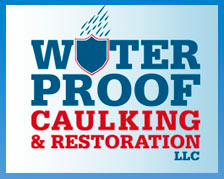Concrete is porous, meaning it contains small holes that can allow moisture in. Over time, the moisture can cause issues such as staining, mold, and cracks in the concrete. A penetrating sealer is designed to protect against moisture by forming a chemical barrier of waterproof material in the concrete. It actually penetrates the concrete for superior protection, whereas topical sealer only covers the top portion.
There are many reasons to consider using a penetrating sealer for the concrete around your home or business. In addition to waterproofing the porous surfaces and keeping moisture out, it can also lengthen the expected lifespan of your concrete, protect it from stains, and more.
Waterproofing Porous Surfaces
Perhaps the primary role of penetrating sealer is to protect concrete and other materials with porous surfaces from excess moisture and water exposure. Without a reliable sealer, porous surfaces are at risk of damage, mold growth, and other concerns. A high-quality penetrating sealer will repel both water and oils, while still allowing the concrete to breathe. It does not affect the appearance of the porous surfaces, and it can lengthen the lifespan of the material substantially.
Stain Protection and Sheen
Another concern with porous surfaces is staining. Since porous surfaces such as concrete are less water-resistant, they are more vulnerable to discoloration caused by dirt and other materials seeping into the concrete. A penetrating sealer protects from stains by allowing water, oil, and other substances to run off properly. A penetrating sealer can also improve the appearance of the porous surface. Although it may not change the color of the surface, it can give it a nice shine and a stain-free, overall cleaner look.
Protecting Surface Materials
Penetrating sealers protect porous surfaces in a variety of ways. Excess porosity in cement and other porous materials can cause early damage over time. As mentioned, it can also increase the risk of staining, which causes aesthetic complications to the porous material around your property. Penetrating sealer protects the material by significantly reducing the amount of oil and water that penetrates the surface.
Use on Concrete
Penetrating sealer is perhaps most commonly used on concrete surfaces. This is because concrete is very porous, and water, oils and other types of liquid runoff can damage the concrete over time. A penetrating sealer can protect concrete and ensure it remains in ideal condition long-term.
A penetrating sealer can also protect concrete from freezing or picking up salts, chemicals and other materials that can damage the quality of the concrete prematurely. It can also keep the concrete from getting too wet, which could present a safety hazard or affect its appearance if used regularly. By choosing the right type of penetrating sealer for your concrete, you can keep concrete looking dry and avoid it from soaking up too much water, oil, and other potentially harmful liquids over time.
Different Types of Penetrating Sealers
Not all penetrating sealers are the same. Some have small particles that allow for deep penetration into cementitious material and a longer lifespan. Understanding the different types and when one might be preferable to another is certainly helpful. The most common types of penetrating sealers include:
- Silicates – This offers unique benefits. Silicate is well-known for improving the shine of concrete, along with offering reliable water and oil resistance. It also has a relatively long life span.
- Silanes – Silane is a good choice if you are looking for a sealer that penetrates deep into cementitious material. It may not enhance the appearance as much as silicate, but it can last for more than five years and offers superior water and oil resistance.
- Siloxanes – Siloxane contains larger particles, which makes it less able to penetrate deep into porous surfaces. However, it can be a cost-effective solution for those who are on a budget.
- Siloconates – This penetrating sealer offers excellent porosity protection. It features medium-sized particles that take effect deep into the porous surfaces. It is great at preventing excessive water and oil absorption long-term.
- Fluorinated – Many prefer fluorinated penetrating sealers and find them more effective. However, they are often less available and typically more expensive.
Call The Waterproofing Experts
Call our team at Waterproof Caulking and Restoration today for more information about penetrating sealers. We specialize in commercial sealing to ensure your building is properly protected from moisture and water damage in the long-term. Proper application of penetrating sealer can help in a variety of ways.
Along with the prevention of water damage, it can keep the concrete and other types of porous surfaces looking great, improving the overall aesthetic appeal of your property. We are glad to answer any remaining questions you have about penetrating sealers, so feel free to reach out now for a fast reply.
